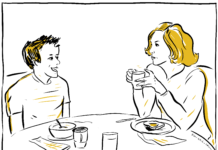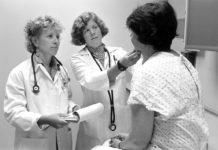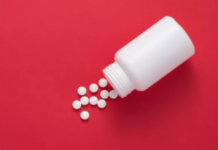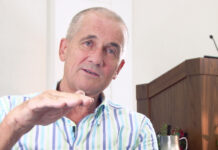The Impact of Regression to the Mean in Psychiatric Drug Studies
Could the statistical phenomenon of regression to the mean be responsible for the dramatic effects of placebo—as well as the supposed effectiveness of some psychiatric drugs?
The Power of Placebo is Strengthened by Having a Warm and Competent Practitioner
The effect of individual expectations on treatment outcomes is found to be influenced by physician attributes.
A Radical Hypothesis: Give Patients Drugs They Know Don’t Work
In this interview for Vox, Ted Kaptchuk discusses his research on the effectiveness of giving open-label placebos - sugar pills that the doctors admit are...
Lancet Editorial Points to “Trouble with Psychiatry Trials”
While clinical trials make up the “bedrock of evidence-based medicine” in other specialties, psychiatry faces a number of both ethical and scientific problems related to its use of randomized control trials. According to a new editorial in The Lancet Psychiatry, the field of psychiatry research has particular problems with ethical issues in recruitment, inaccurate classification systems, and controversial placebo comparisons, and then, once the studies are finished, it often remains unclear what the “outcomes actually mean for people’s lives.”
“FDA Forced to Release Adverse Event Reports on Psychiatric Drugs”
Following a lawsuit brought by Andrew Thibault of Parents Against Pharmaceutical Abuse (PAPA), the FDA has produced adverse event and severe adverse event reports...
“How Meditation, Placebos And Virtual Reality Help Power ‘Mind Over Body’”
NPR’s Fresh Air interview science writer Jo Marchant about her new book “Cure: A Journey into the Science of Mind over Body.” Marchant explores...
Mindfulness Pain Relief Distinct from Placebo Effect
A new study demonstrates that the practice of mindfulness may ease pain in a way that is mechanistically distinct from the placebo effect. Research, published in the Journal of Neuroscience, found that mindfulness meditation not only outperformed placebo and fake meditation for pain relief but that it also activated different brain regions than the placebo treatments.
Brain Response to Antidepressant Mirrors Placebo Effect
People diagnosed with severe depression show the same changes in brain scans when they respond to a placebo as they do when they take an actual antidepressant, according to a new study. Researchers also found that those whose symptoms were decreased by a placebo were more likely to report relief from antidepressant drugs.
Members of FDA Advisory Committee Offer Perspectives on Flibanserin Approval in JAMA
In the September issue of The Journal of the American Medical Association (JAMA) three FDA advisory committee members describe the convergence of factors that made the committee’s recommendation to approve flibanserin especially challenging and politically charged.
Negative “Nocebo” Response Even More Powerful Than “Placebo” Response?
Doctors who intentionally or unintentionally communicate to patients that they do not believe or understand them could be causing patients' symptoms to worsen.
But How Much Better Are The Expensive Placebos?
-The Washington Post reports on a study that found that "expensive" placebos were more effective than cheap placebos.
Quality of Relationship to Doctor Significantly Improves Antidepressant Efficacy
The more that patients feel that they have a high-quality relationship with their prescribing physician, the more likely that they will regard their own responses to antidepressants as positive.
Not an Onion Study: Laughing Gas vs Air for Treatment of Depression
"Nitrous oxide, or laughing gas, has shown early promise as a potential treatment for severe depression in patients whose symptoms don’t respond to standard therapies," stated a press release about a widely-reported study that was published in Biological Psychiatry. The press release also stated that over a third of the patients improved after being given air.
Strong Placebo Response to Antidepressants Forms Even Before Drug Trials Start
A strong placebo response is apparently more often caused by people's expectations coming into a randomized, blinded clinical trial, than it is caused by...
Why Placebos Really Are More Effective
Bioethics professor and formal medical doctor Paul Biegler discusses the ongoing battles for effectiveness-supremacy between antidepressants and placebos in The Conversation. "Some think advertising...
Researchers Struggle as Placebos Becoming More Effective & Antipsychotics Losing Power
Since the 1960s, the positive response rates to antipsychotic medications have been dropping steadily, according to a meta-analysis published in JAMA Psychiatry by Columbia...
Previous Experiences with Treatments Influence Effectiveness of New Treatments
Previous experiences of treatments working or not working significantly influence the effectiveness of new treatments on clinical trial participants and patients, even in relation...
Therapy More Effective than Medications for Anxiety — Placebos Also Effective
One-on-one Cognitive Behavioral Therapy is better than psychiatric medications or other common psychotherapeutic interventions for severe anxiety disorders in adults, according to a large...
On Pharma, Corruption, and Psychiatric Drugs
"My studies in this area lead me to a very uncomfortable conclusion: Our citizens would be far better off if we removed all the psychotropic drugs from the market, as doctors are unable to handle them. It is inescapable that their availability creates more harm than good."
- Peter Gøtzsche, MD; Co-founder of the Cochrane Collaboration
The Increasing Placebo Response in Antipsychotic Drug Trials
The American Journal of Psychiatry explores the implications for science and ethics of the rising placebo response rate in trials of antipsychotic drugs, in an...
When Placebos Beat Active Treatment
U.K. researchers find, in a systematic literature review and meta-analysis of medical (not only psychiatric) treatments that when bias is ruled out and effects...
Psychiatric Drugs: an Increasing Portion of Prescription Costs
Rising prescriptions for psychiatric medications are partly a result of longer-term treatment and increasing population, according to an article by Joanna Moncrieff and Stephen...
Post-Prozac Nation: The Science and History of Treating Depression
The Sunday New York Times Magazine traces the history and controversy around serotonin, "imbalance theory," deep-brain stimulation and more; including references to Irving Kirsch and placebos,...
Antidepressants and Advertising: Psychopharmaceuticals in Crisis
An article by written by faculty of the Harvard History of Science Department and the Program in Placebo Studies explores how "drug marketing portrays...
Placebos In The News
A study that will appear in European Neuropsychopharmacology found that "the brain's response to the placebo pill seems to depend ... on whether or not...













